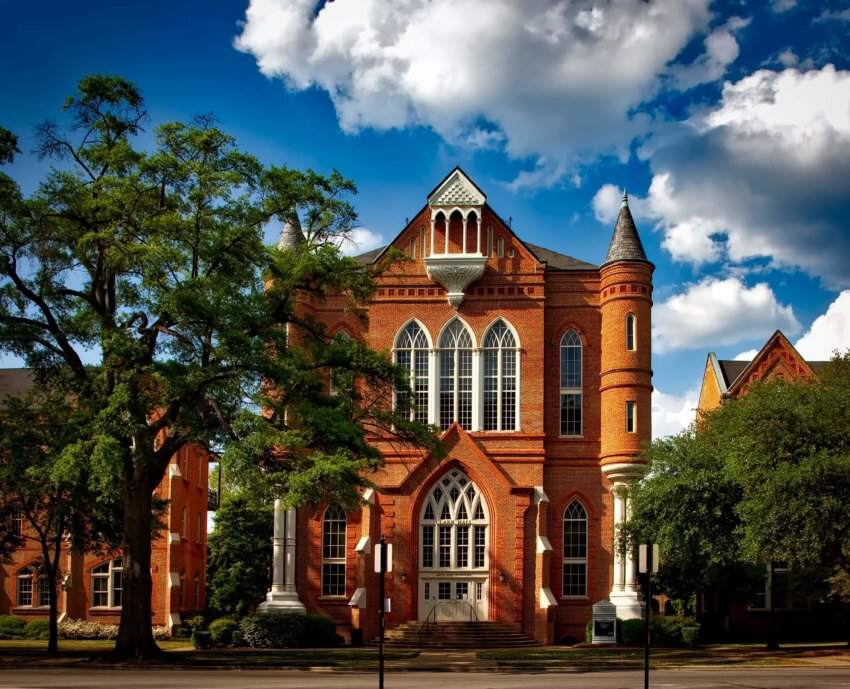The Difference Between College and University
Updated: June 19, 2024
Published: December 8, 2019

College vs University, what’s the deal? When researching higher education in the United States, you may have come across a common theme — that the words college and university are used to describe the same thing. But are they the same?
The answer is no, not really. There are colleges and there are universities, but most Americans will call a university “college.”
Finally find out the difference between college and university here, and get advice on how to choose the right one for you.
The Difference Between College and University

Photo by Element5 Digital on Unsplash
In informal American English, the terms “college” and “university” are used interchangeably.
Someone will say they are “off to college!” but they really mean they are headed to university.
School names aren’t too helpful either. For example, the College of William and Mary in Virginia is actually a public university.
The main difference is the reason for attending. Colleges are for people going to school for a more specific purpose, whereas university students are also going for a purpose and an experience.
What is a University?

Photo by Pixabay from Pexels
Universities are usually 4-year schools that also offer graduate programs and postgraduate programs. There are both public and private universities.
A common misconception is that universities are always large and colleges are small, but that’s not the case. Some universities have less than 1,000 students.
However, it is true that typically universities offer more research opportunities and are more prestigious than most colleges. Again, this is not true for all.
Finally, in universities, you will find many campus activities and amenities such as large athletic programs, on-campus library systems, fitness centers, health centers, sororities and fraternities, and on-campus residences.
What is a Research University?
Research universities, as opposed to regular public universities or liberal arts colleges, have faculty members who are also on staff to do research at the university. They publish research as well as teach.
Some say that professors who teach at research universities aren’t as focused on their students because they are at the school to do research, and are required to teach. This is more of an exception, rather than the rule.
Research universities are usually more prestigious than other types of universities, and of course, you will have more opportunities to get involved with groundbreaking or important research.
Public University vs. Private University
Public universities are funded by the state that they are located in, therefore there is such a thing as in-state vs out-of-state tuition. Residents of the state will pay much less tuition than nonresidents — up to $20,000 per year less.
Private universities receive no public funding and are therefore the same tuition for everyone. They are almost always more expensive than public universities, and are typically created with religion in mind, most commonly Catholic.
What is College?

Photo by Caleb Minear on Unsplash
Commonly referred to as community college, a college typically offers 2-year programs, instead of the 4-year programs that are offered at universities. However, many colleges do offer bachelor’s degrees.
Colleges cater to a wider variety of students including high school students, adult learners, second language learners, and more. Colleges and community colleges offer continuing education, certificates or short-term programs, and they never offer degrees higher than a bachelor’s degree.
These types of schools will rarely have athletics, study abroad programs, Greek communities or on-campus dorm systems.
What is a Liberal Arts College?
Liberal Arts Colleges encompass many of the aspects stated above, with an important exception: that they are not necessarily meant for non-traditional learners. The same type of students who would attend university (those just after high school) might attend a liberal arts college.
These colleges are usually smaller, do not offer research or athletics, and only provide undergraduate programs. Traditionally, they offered programs in arts and humanities only, but today liberal arts colleges offer degrees in many disciplines.
Choosing the Right School for You

Photo by Yingchou Han on Unsplash
There are so many factors to look at when you are choosing the right school for you. To make the best decision, take a look at where you are right now and where you want to be. Then ask yourself, how do I get there, and how do I want to spend my time getting there?
1. Money
No matter whether its a college or university, make sure the cost makes sense for what you want to do. Look at your intended income post-college and how much your college will cost you. Be sure that you can afford it, or that it will be worthwhile.
2. Location
Community colleges are more local, where some universities and liberal arts colleges can be far away from cities. This is not true for all of them, but make sure that your school is in a location that makes sense for you.
3. Program Offerings
If you are looking for evening classes for a certification, college might be better. For a brand name school with lots of research and networking opportunities, university is the way to go.
Consider Online Programs
A great alternative for people who want the price and flexibility of a college but also like the idea of having a reputable name behind their degree, is to study at a fully online university.
University of the People is a US accredited university, offering associate’s, bachelor’s, and master’s degrees, all of which are tuition-free. To learn about the differences between traditional colleges and online ones, check out our guide.
Conclusion
To sum up, if you are looking for flexibility and affordability, go for online programs.
For a true college experience with research, lots of opportunities, and graduate programs, try a university.
If you are looking for a university-type experience but on a smaller scale, a liberal arts college might be for you.
Finally, if you are looking to get a degree only or certification and you’re also working, a community college could be the way to go.
No matter what you choose, there are many options available for you. Good luck on making your college vs university decision!
